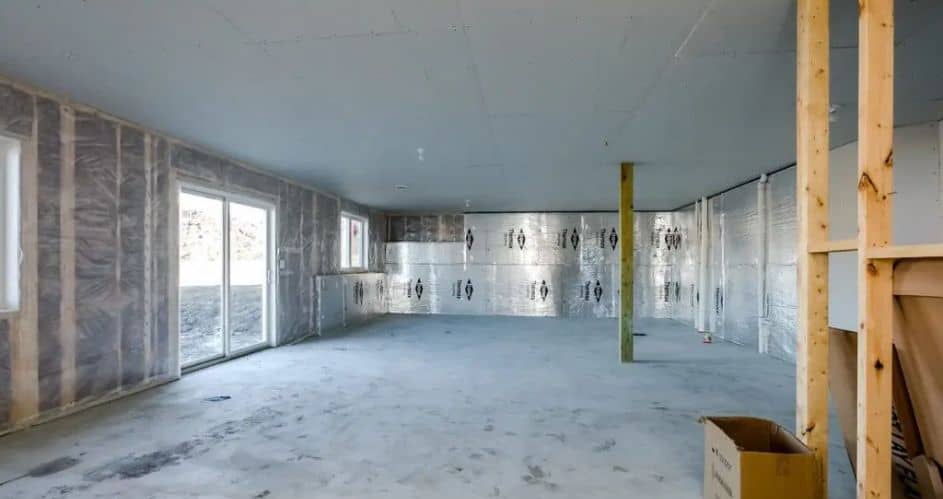
If you’re like most of us, you might not give your basement the attention it deserves. But did you know that basement maintenance is an essential part of keeping your home in tip-top shape?
Not only does it help maintain the structural integrity of your house, but it can also prevent costly issues like water damage, mold growth, and pest infestations. Plus, a well-maintained basement can enhance your home’s energy efficiency and even increase its property value.
But fear not! Our guide is here to help you navigate the world of basement maintenance, making it a breeze instead of a chore. We’ll start with the benefits of properly maintaining your basement and move onto some practical tips – so let’s dive right in!
Maintaining Structural Integrity
Your basement serves as the foundation of your home, and neglecting its maintenance can lead to structural issues. Cracks in walls, floors, or the foundation can worsen over time, causing severe damage that may be expensive to repair.
Regular maintenance ensures your basement remains in good condition, contributing to the overall stability of your home.
Preventing Water Damage and Mold Growth
Basements are prone to moisture problems, which can result in water damage and mold growth if left unaddressed. Excess moisture can weaken your home’s structure, cause rot, and even create health hazards for you and your family.
By keeping an eye on your basement and addressing moisture issues promptly, you can prevent these problems and maintain a healthy living environment.
Enhancing Energy Efficiency
A poorly maintained basement can contribute to energy inefficiency in your home. For example, drafts from windows and doors, inadequate insulation, and moisture issues can all lead to heat loss during winter and increased cooling costs during summer.
By taking care of your basement, you can improve your home’s overall energy efficiency, saving you money on utility bills in the long run.
Increasing Property Value
A well-maintained basement not only adds functional space to your home but also increases its property value.
Buyers are more likely to be interested in a home with a clean, dry, and well-cared-for basement, as it demonstrates that the owner has been diligent in maintaining the entire property.
By investing time and effort in basement maintenance, you can enjoy a higher return when it’s time to sell your home.
Regular Inspections
By now, you should be convinced of the importance of basement maintenance. But where do you start?
The answer is simple: regular inspections! Keeping a close eye on your basement will help you identify and address potential problems before they become major headaches.
Regular inspections allow you to spot issues like cracks, leaks, or signs of pests early on. By addressing these problems promptly, you can prevent more extensive damage and save yourself time, money, and stress.
Additionally, routine inspections help you maintain a healthy living environment by keeping moisture and mold at bay.
For the best results, aim for a thorough inspection at least twice a year—once in the spring and once in the fall. These seasonal checks will help you catch any issues that may have arisen due to changing weather conditions.
Of course, it’s a good idea to give your basement a quick once-over every few months, especially after heavy rain or snow, to ensure everything is in order.
When performing a basement inspection, make sure to pay attention to the following areas:
Walls and floors:
Check for cracks, water stains, or signs of efflorescence. These could indicate moisture issues or structural problems that need addressing.
Windows and doors:
Inspect for drafts, gaps, and signs of water intrusion. Ensure that window wells are clear of debris and that window seals are intact.
Plumbing and electrical systems:
Examine pipes for leaks or signs of corrosion. Check electrical outlets, switches, and wiring for damage or loose connections. If you spot any issues, consult a professional plumber or electrician to address them safely.
Foundation and structural components:
Look for cracks, signs of movement, or other irregularities in the foundation walls and supporting structures. If you suspect any issues, it’s best to contact a structural engineer or foundation specialist for further evaluation.
Moisture and Humidity Control
One of the most common challenges you’ll face in basement maintenance is controlling moisture and humidity.
Excess moisture can lead to a host of problems, from structural damage to mold growth. Let’s dive into the steps you can take to keep your basement dry and comfortable:
Moisture can enter your basement through various sources, including:
- Groundwater seepage through walls or floors
- Leaky pipes or plumbing fixtures
- Condensation from appliances or HVAC systems
- Poorly sealed windows or doors
Keep an eye out for these indicators of moisture problems in your basement:
- Musty odors
- Damp or wet spots on walls, floors, or ceilings
- Mold or mildew growth
- Peeling paint or wallpaper
- Warped or rotting wood
To reduce humidity and moisture levels in your basement, consider the following strategies:
Proper ventilation:
Ensure that your basement has adequate ventilation, either through natural means (like windows) or mechanical systems (like exhaust fans or air exchange units).
Dehumidifiers:
Invest in a high-quality dehumidifier designed for basements. This can help maintain a comfortable humidity level, usually between 30% and 50%.
Vapor barriers:
Install vapor barriers on your basement walls and floor. These plastic or foil sheets can help prevent moisture from seeping into your living space.
Also, check if sump pump repair is necessary from time to time. If your sump pump malfunctions, you won’t be able to easily get rid of excess water buildups – potentially leading to water damage.
